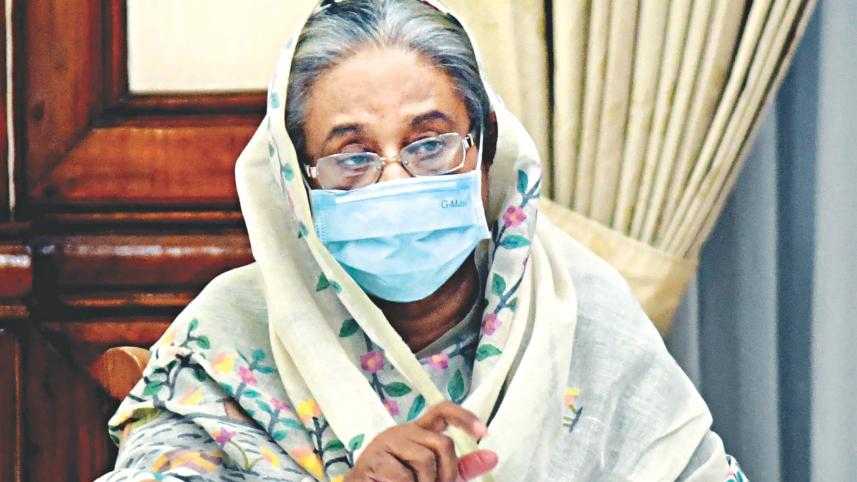PM’s 31 directives

Prime Minister Sheikh Hasina has issued a set of very comprehensive directives. But, as we know, with all directives, there are three phases to it—its issuance, its speedy, efficient and systemic implementation and finally, its strict monitoring. As for the directives, they are comprehensive, insightful and highly relevant. Here, our suggestion is that related directives should be grouped into clusters with specific time frames, within which each cluster will have to be implemented. Without any time frames, they will be limited in their effect.
However, implementation of these directives will be very challenging, since many of them require massive organisational capacity and resources. The test will be in putting the huge infrastructure of the government into action, which we know to be cumbersome, full of inertia, and hierarchical to the extent of being dysfunctional. Our world-recognised experience with disaster management should prove to be useful; remembering however, that traditional disaster management involves only a section of our bureaucracy, whereas now we need the totality of it to come into gear.
Directive 9 calls upon city corporations, municipalities and upazila parishads to undertake cleanliness drives. Since there is a general shutdown, we think now is an ideal opportunity to clean our cities—there will never be such a time of sparse traffic and limited garbage. Will the relevant leaders and institutions rise to the occasion?
Directives 16 and 17 say "supply systems should be maintained" and "general activities will continue and prices of essentials will have to be kept under control". Both are most important and will need efficient planning, execution and monitoring to achieve.
Directive 21 tasks the pubic representatives and the upazila administration to "distribute food among the distressed people by preparing a ward-based list". This is a very important directive whose success will greatly depend on the authenticity of the list. Food is what people need most in the beginning and food is where a great amount of corruption takes place. The PM has warned against it, but will this warning be enough? We have already seen several cases of local leaders hoarding rice meant for distribution.
In her final two directives, the PM has asked the media to keep watchful eyes on preventing the spread of rumours. This we are happy to commit to it as it is a part of our professional duty. However, we suggest the setting up of an inter-ministerial monitoring body without which the PM's directives will not achieve the desired results.



 For all latest news, follow The Daily Star's Google News channel.
For all latest news, follow The Daily Star's Google News channel.
Comments